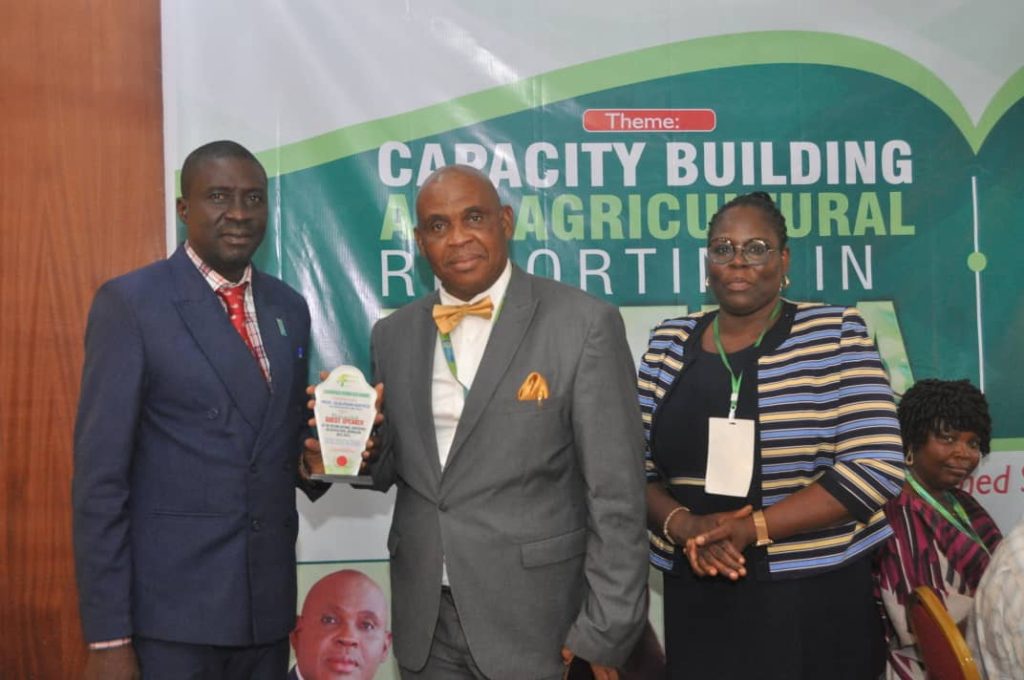The Deputy Vice-Chancellor, Research, Innovation, Strategy and Administration, Caleb University, Imota, Lagos State, Nigeria, Prof. Olalekan Asikhia, has given the significance of effective agricultural reporting in promoting transparency and accountability within Nigeria’s agriculture sector.
Asikhia reiterated that effective agricultural reporting can contribute to greater transparency and accountability within the sector, ensuring that farmers are well-informed about available insurance options and compensation mechanisms.
The don made this known during his paper presentation titled: ‘Identifying the Risks Associated with Coverage of Agriculture and Compensation Management’, at the National Conference on Agricultural Journalism (NCAJ 2024), held at Caleb University, Imota, Lagos State, Nigeria.
He said inadequate training and lack of resources for agricultural journalists remain significant barriers to effective coverage, noting that improved media coverage can foster a better understanding of the risks that farmers face and the mechanism put in place to mitigate those risks.
The DVC said that capacity building was essential for improving agricultural reporting and risk management in Nigeria, adding that training media professionals on how to effectively report on agricultural risks, insurance schemes, and compensation mechanisms was crucial to fostering well-informed farming community.

The Professor added that effective agricultural reporting must be data-driven to enhance risk management, but that the country’s reporting structures currently seem to lack the technical capacity to support such efforts.
He stressed that without proper data systems in place, farmers would remain uninformed about risks they face and the benefits of available insurance schemes.
“When risks are not adequately documented, farmers are left unaware of compensation mechanisms of safety nets that could protect them”, as he emphasised that lack of transparency and clarity in the reporting of agricultural risks can exacerbates farmers’ vulnerabilities, saying this situation had underscored the importance of improving Nigeria’s agricultural data infrastructure.
This would allow for better assessment of risk and effective communication between insurance providers, farmers, and policy makers. The guest speaker submitted that the integration of data management systems with communication efforts would ensure that farmers receive timely and accurate information about risks, compensation options, and insurance schemes available to them.
“Public awareness campaigns should be launched to inform farmers, particularly in rural areas, about the availability and benefits of agricultural insurance, and that Nigeria should explore opportunities for international collaborations in building capacity and improving agricultural reporting”, Asikhia noted.

